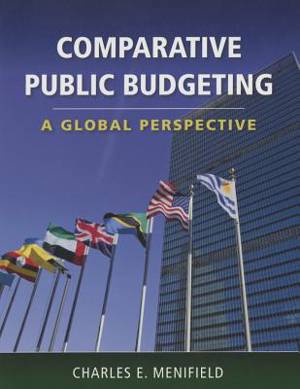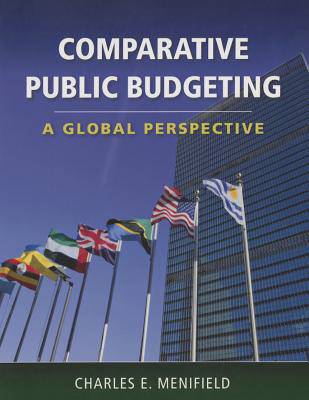
- Retrait gratuit dans votre magasin Club
- 7.000.000 titres dans notre catalogue
- Payer en toute sécurité
- Toujours un magasin près de chez vous
- Retrait gratuit dans votre magasin Club
- 7.000.0000 titres dans notre catalogue
- Payer en toute sécurité
- Toujours un magasin près de chez vous
Comparative Public Budgeting: A Global Perspective
A Global Perspective
Charles E Menifield
Livre broché | Anglais
141,45 €
+ 282 points
Description
Comparative Public Budgeting and Finance is a collection of original chapters examining public budgeting issues, methods, and techniques in countries around the world. Each chapter: --explores the history of the budget system and how it fits within the political system in the country, as well as the legal foundation and any reforms that affect the budget system. A discussion of revenue and expenditure allocations is included in each section. --provides the reader with political, demographic and economic background information on each country along with a detailed analysis of the budgeting process. This information is reinforced with charts, tables and figures. In addition, questions at the end of each chapter will provide the students with key concepts to focus on. --also examines topics such as: budget behavior and decision making, capital budgeting, analytical processes, budget processes, intergovernmental relations, budget reform, performance budgeting, and financial management. --concludes with a list of thought provoking questions, an appendix, end notes and a glossary which provides a point of departure for classroom discussion as well as individual student research on each country. Appropriate Courses: Primary Course Title: Comparative Budgeting. Primary Department: Public Administration. Secondary Course: Budget and Finance. Secondary Department: Public Affairs, Department of Political Science, or Public Affairs. This book is specifically designed for a graduate level course in budgeting. There are no other books currently on the market that examine budgeting in a comparative sense that focuses on individual countries. So, rather than utilize a lot of articles from journals a faculty member can use one text and use the articles as supplemental documents. This is the greatest benefit. The second benefit is the instructor's manual with the lecture outline and power point slides. The instructor should have minimal preparation for the course and students can simply read the questions at the end of the chapter to see where they should focus their attention. The book stands out because it is a one of kind in an area that has massed considerable attention in the last year given the credit crunch that has occurred world wide. It is important from a pedagogical standpoint to provide the instructor with as much information and tools as possible given the need to fully utilize technology in the classroom. 1. Does the book have questions at the end of the chapters? 2. Does the book provide power point slides? 3. Does the book provide an instructor's manual. 4. Does the book critically assess the subject matter and cause students to think? 5. Does the book address the issues in a coherent fashion? There are no books that examine comparative budgeting utilizing this paradigm, a country by country examination. Books that are on the market utilize a thematic approach and then use country examples when discussing those themes. For example: Anwar Shah (ed). Budgeting and Budgetary Institutions, 2007/ The World Bank.
Spécifications
Parties prenantes
- Auteur(s) :
- Editeur:
Contenu
- Nombre de pages :
- 392
- Langue:
- Anglais
Caractéristiques
- EAN:
- 9780763780104
- Date de parution :
- 09-08-10
- Format:
- Livre broché
- Format numérique:
- Trade paperback (VS)
- Dimensions :
- 178 mm x 226 mm
- Poids :
- 639 g

Les avis
Nous publions uniquement les avis qui respectent les conditions requises. Consultez nos conditions pour les avis.






